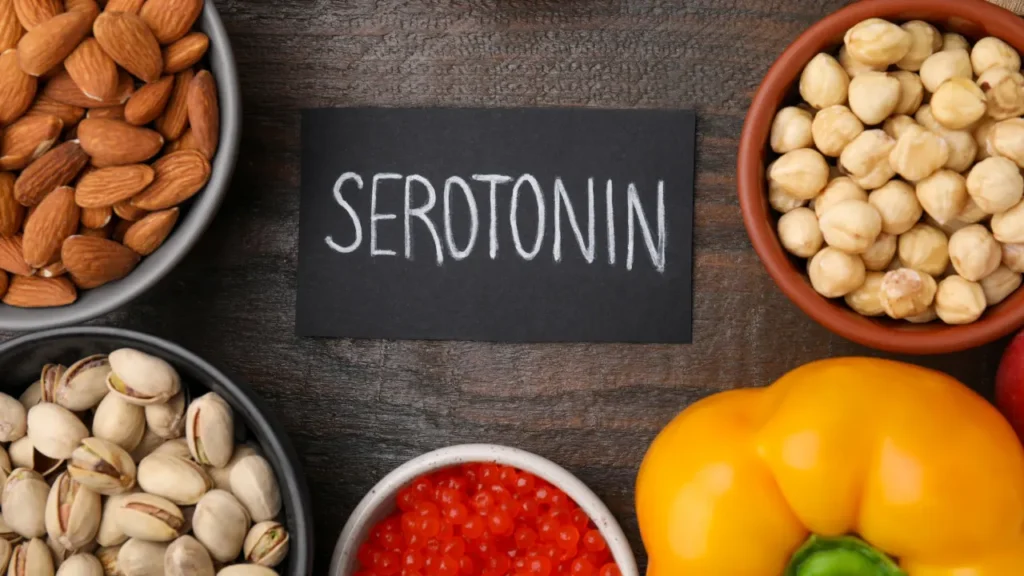Many societies have been using natural substances for ages to improve their cognitive abilities. Among these, snake skin—often seen as an unusual source—has drawn interest in the nootropic community lately due to its possible advantages in enhancing cognition, alertness, and focus. In order to give readers a thorough understanding of snake skin as a nootropic supplement, this article will provide information on its chemical makeup, physiological processes, ideal dosage, possible side effects, substance interactions, and recommendations for safe use. Through scientific rigor, we hope to provide insightful information to anyone who is considering the use of snake skin as a cognitive enhancer.
You May Also Like:
5 Things to Consider When Choosing the Best Mushrooms for Mental Health
Snake Skin: Benefits, Dosage, Side Effects, Drug Interactions, and Other Important Information is an original (NootropicsPlanet) article.
Nature of Snake Skin
The main protein that makes up a snake’s skin, which is its outer layer, is keratin, which is also present in our hair and nails. Due to its distinct makeup, the snake’s skin is elastic and durable, which is necessary for its survival and movement. For snakes, ecdysis—the act of shedding skin—is a normal occurrence that promotes growth and gets rid of parasites. Instead of using live tissue, shed skin is usually used for nootropic purposes, and it is processed through a number of steps to make it safe for ingestion.
Health Benefits
The exploration of snake skin as a nootropic supplement has intrigued many nutritional scientists for its potential health benefits, particularly in enhancing cognitive functions. While the scientific evidence supporting the use of snake skin for cognitive enhancement is limited and largely anecdotal, several purported health benefits have been identified based on its chemical composition. These include improvements in alertness, focus, and overall brain health. Below, we will focus on the details of these proposed health benefits:
Enhancement of Cognitive Functions
- Alertness and Focus: The amino acids present in snake skin, such as glycine and proline, can play a role in the synthesis of neurotransmitters that are crucial for cognitive alertness and focus. For instance, glycine acts as an inhibitory neurotransmitter in the central nervous system (CNS) and can modulate brain function to enhance alertness and attention span.
- Memory Improvement: Snake skin contains minerals like zinc and magnesium, which are vital for brain health. Zinc plays a critical role in neurotransmitter release and can influence memory formation and learning. Magnesium, on the other hand, is essential for synaptic plasticity, which is the ability of synapses to strengthen or weaken over time, crucial for learning and memory.
Neuroprotective Effects
- Antioxidant Properties: Some bio-active compounds found in snake skin might exhibit antioxidant properties, helping to neutralize free radicals in the brain. This can mitigate oxidative stress, a factor implicated in the aging process and the development of neuro-degenerative diseases such as Alzheimer’s and Parkinson’s disease.
- Support Neuronal Health: By potentially influencing the production and activity of neurotransmitters, components in snake skin can support overall neuronal health. This can help maintain cognitive functions and delay cognitive decline associated with aging.
Support in Stress Management and Mood Regulation
- Stress and Anxiety: The potential effects of snake skin on neurotransmitter systems can also extend to the regulation of mood and stress response. For instance, an optimal balance of amino acids and minerals could positively affect the hypothalamic-pituitary-adrenal (HPA) axis, reducing symptoms of stress and anxiety.
- Mood Improvement: Similarly, by possibly impacting serotonin and dopamine levels, snake skin can help improve mood and combat symptoms of depression. These neurotransmitters are essential for good health and happiness.
Potential Immunomodulatory Effects
While the direct impact of snake skin on the immune system as a nootropic is still undergoing research, its amino acid content can play a role in supporting immune function. A well-functioning immune system is crucial for overall health, including the maintenance of cognitive functions.

Chemistry of Snake Skin
When snake skin is chemically analyzed, a complex mixture of minerals, amino acids, and other bio-active components are revealed. It is thought that these elements interact with human physiology in a way that can improve our cognitive abilities. Glycine and proline are two amino acids that are essential for the production of neurotransmitters and the health of neurons. Zinc and magnesium, two minerals that are abundant in snake skin, are essential for maintaining synaptic transmission and shielding neurons from oxidative stress.
Physiological Properties of Snake Skin
It is thought that snake skin’s impacts on neurotransmitter systems and neuro-protection are what cause its cognitive-enhancing properties. The amino acids found in snake skin can help produce dopamine and serotonin, two neurotransmitters essential for focus, mood management, and alertness. Furthermore, some of the chemicals found in snake skin have antioxidant properties that can lessen the harm free radicals do to neurons, therefore extending and strengthening cognitive function.

Optimal Dosage
Given the variation in individual responses and the paucity of comprehensive clinical research, determining the best dosage of snake skin for nootropic effects is difficult. Small, regular doses can improve cognitive function without having negative side effects, according to preliminary research and anecdotal data. However, doses should be used carefully, and speaking with a healthcare provider is advised to customize the amount based on your unique health background and objectives.
Side Effects of Snake Skin
Using snake skin in nootropic formulations, while showing promise for cognitive enhancement, carries the potential for side effects. These negative reactions are largely attributed to individual sensitivities and the biological components of snake skin. Key side effects include:
- Allergic Reactions: Individuals with preexisting allergies, particularly to animal proteins, can experience allergic reactions to snake skin. Symptoms can range from mild (such as rashes and itching) to severe (including anaphylaxis), necessitating immediate medical attention.
- Digestive Disturbances: Given that snake skin is not a common dietary ingredient for humans, ingestion can lead to digestive issues such as nausea, vomiting, or diarrhea. These symptoms are typically mild and transient but may be bothersome for some individuals.
- Skin Irritation: External application or handling of snake skin, especially if not properly processed, can lead to skin irritation or contact dermatitis in sensitive individuals.
- Immunological Responses: There is a theoretical risk that comes with prolonged ingestion of snake skin that can trigger immune system responses, potentially leading to auto-immune reactions or complications in individuals with immune disorders.

Potential Substance Interactions with Snake Skin
The biochemical composition of snake skin, rich in amino acids and minerals, suggests that it can interact with various substances, including medications and other supplements. While specific interactions have not been extensively studied, potential concerns include:
- Neuro-active Medications: Snake skin can interact with medications affecting neurotransmitter levels, such as antidepressants, antipsychotics, and medications for Parkinson’s disease. These interactions can potentially alter the effectiveness of these medications or exacerbate side effects.
- Supplements with Similar Effects: Combining snake skin with other nootropic supplements or substances known to affect neurotransmitter levels (like St. John’s Wort or 5-HTP) might lead to synergistic effects. While this can enhance cognitive benefits, it also raises the risk of overstimulation or serotonin syndrome, a rare but serious condition.
- Blood-Thinning Agents: Given the lack of thorough research, there is a speculative risk that snake skin can cause blood clotting, especially when taken with anticoagulants like warfarin or natural supplements with blood-thinning properties (e.g., ginkgo biloba, fish oil).
- Mineral Absorption: The mineral content in snake skin, such as zinc and magnesium, can interact with other mineral supplements or medications, affecting their absorption and bio-availability. This can potentially lead to imbalances or interfere with the treatment of mineral deficiencies.
Best Responsible Use
It is crucial that individuals who want to use snake skin as a nootropic supplement do so responsibly. This includes locating premium, morally sourced snake skin, assessing tolerance by starting with small doses, and monitoring for any negative reactions. For the best results, it is also advised to combine snake skin with a more comprehensive cognitive enhancement plan that also includes a healthy diet, consistent exercise, and mental health practices.
Snake Skin:
Conclusion
In conclusion, snake skin supplements have garnered attention for their many potential health benefits. While traditional medicine has used snake skin for various purposes, modern research is still exploring its efficacy. Some studies suggest that snake skin extracts may possess anti-inflammatory properties and could contribute to overall well-being. However, it is essential to approach these supplements with caution, considering individual differences and consulting healthcare professionals. As the scientific community continues to investigate snake skin’s potential, it is advised to make informed decisions based on reliable evidence and expert guidance.
References:
- Snake Skin – Uses, Side Effects, and More. Retrieved from: https://www.webmd.com/vitamins/ai/ingredientmono-1521/snake-skin
- Snake Skin as a Nootropic. Forbes Health. “A Guide To The Best Nootropics, Recommended By Experts.” Retrieved from: Forbes Health, October 26,2023. https://www.forbes.com/health/supplements/best-nootropics/
- Cognitive Benefits of Snake Skin. Healthy Focus. “Health Benefits of Rhinacanthus Nasutus: Snake Jasmine.” Healthy Focus, January 13, 2020.Retrieved from: https://healthyfocus.org/health-benefits-of-rhinacanthus-nasutus-snake- jasmine/
Important Note: The information contained in this article is for general informational purposes only, and should not be construed as health or medical advice, nor is it intended to diagnose, prevent, treat, or cure any disease or health condition. Before embarking on any diet, fitness regimen, or program of nutritional supplementation, it is advisable to consult your healthcare professional in order to determine its safety and probable efficacy in terms of your individual state of health.
Regarding Nutritional Supplements Or Other Non-Prescription Health Products: If any nutritional supplements or other non-prescription health products are mentioned in the foregoing article, any claims or statements made about them have not been evaluated by the U.S. Food and Drug Administration, and such nutritional supplements or other health products are not intended to diagnose, treat, cure, or prevent any disease.


